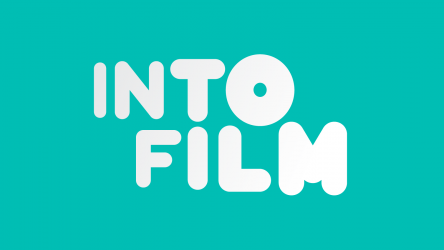Into Film Clubs
Find out everything you need to know about starting an Into Film Club.



Famed for his provocative politics and focus on working class lives, giving a voice to the persecuted and impoverished, Loach is arguably the defining voice in the British tradition of social realist drama and has been making films for nearly fifty years.
Social realism is an international multi-stranded art movement focusing on the everyday lives of poor and working class communities. Often criticising the social structures that reinforce bleak conditions, it also maintains a focus on family and celebrates community solidarity. In Britain, the tradition can be traced back to the literary work of Dickens and Hardy and has always been an important part of cinema.
During the 1950s and 1960s, a British New Wave emerged in film, television and theatre, challenging the status quo and drawing attention to social injustice. Together with a relaxation in censorship laws, more complex, provocative work began to be produced, partly influenced by Italian neo-realism films such as Bicycle Thieves, and the 1950s British documentary movement known as Free Cinema. It was through these changes that Loach - together with his contemporary, Mike Leigh - emerged. Notable films from this period include The Loneliness of the Long Distance Runner and Saturday Night, Sunday Morning, and the movement remains hugely active through directors such as Andrea Arnold (Fish Tank); Danny Boyle (Millions), and Shane Meadows (Somers Town).
After studying law, Loach briefly worked as an actor (including as an understudy to Carry On... actor Kenneth Williams) before joining the BBC as a trainee television director in the 1960s. At the time, television drama was mainly focused on period work, with little-to-no representation of the contemporary working classes. When ordinary people did appear on screen, they tended to be depicted in very patronising ways. But a series of social realist dramas changed all of that.
The most significant was arguably Loach's Cathy Come Home, which celebrates its 50th anniversary this year. The story of a young family evicted from their home raised issues that were simply not discussed, such as homelessness, unemployment, and the rights of mothers to keep their children. Filmed in real locations, with real people, the story was initially turned down as being too political - an experience Loach would have to deal with numerous times throughout his career. However, watched by millions, the drama led to the creation of the charity Crisis, as well as providing invaluable publicity for Shelter, another charity. Like much of Loach's work, it remains as relevant to modern audiences now as it was to those in the 1960s.
Loach soon moved into film with Poor Cow, followed in 1969 by Kes, an adaptation of a Barry Hines novel about a skinny, lonely Barnsley schoolboy who finds solace through training a kestrel and slowly starts to believe in himself. Made with a passionate belief that all children are remarkable and that no young people should ever think of themselves as failures, the film struck a remarkable chord on its release and remains one of the seminal representations of adolescence to have emerged from British film.
Using a very naturalistic, observational style of filmmaking, Loach - together with regular collaborators such as producer Rebecca O'Brien, screenwriter Paul Laverty and cinematographer Barry Ackroyd - is known for his meticulous preparation. Rarely disclosing details of a script, he regularly uses non-professional actors and improvisation, all designed to draw out a more instinctive emotional response. He thinks of his camera as an observing person, bringing out the humanity in the characters, allowing the audience to believe they are in the same room. It is perhaps through this technique that Loach is able to draw out such feelings of raw anger in his audience, whether or not they agree with his politics.
As Loach became more successful and the political landscape changed, he in turn made more enemies within the establishment. Made to feel unwelcome by the British film industry, Loach refused to go and work in America like many of his peers, and so struggled for years to get any of his films made. When he could get funding, it was negligible, and he found his work receiving little more than a token distribution, thus depriving audiences of the chance to see his films. A number of documentaries around the miners' strike and the rise of Thatcherism got shut down, as did a controversial play at the Royal Court Theatre.
But Loach has always found a passionate audience in France, and when his Belfast-set thriller Hidden Agenda won a prize at the 1990 Cannes Film Festival, he was back on the filmmaking map. His subsequent film Riff Raff - which again looked at the issue of homelessness - was also successful, even as his work continued to be rubbished by those with differing political opinions to his own.
Even his larger scale work is dominated by his passionate beliefs, focusing on critical moments in history through the eyes of seemingly ordinary people. Land and Freedom follows an unemployed Liverpudlian joining the Republicans in the Spanish Civil War, while The Wind That Shakes The Barley is a gripping and powerful drama set during the Irish War of Independence and the Irish Civil War that attracted plaudits as well as controversy around the world.
But most of Loach's work continues to take place in the recognisable, modern, everyday world. A series of films - including The Angels' Share, Sweet Sixteen, My Name Is Joe, and Looking For Eric - all examine disintegrating family units, through the prism of social injustices and class inequality.
That is not to say that his films are dour or preachy, however. They are in fact infused with warmth, humour and compassion, but are always driven by the director's steadfast refusal to compromise. There is a quiet, ruthless anger to his films, encapsulating Loach's belief that politics and life are intertwined. They are often designed to provoke change - and many have done just that - but equally importantly, his films allow audiences to see themselves on screen; to recognise their own lives, interrogating the everyday and the seemingly mundane, and drawing out its humanity as well as its injustices.
Explore Loach's film I, Daniel Blake in our Into Film Recommends podcast below, or login to SoundCloud to download the podcast and listen on the go.
The Into Film Recommends Podcast Series is also available on iTunes

Ten new British short films suitable for Secondary ages.
CertificateUnclassified
Read More
An extraordinary digital archive of British life across the last 120 years, from home movies to feature films.
Certificate
Viewing 4 of 4 related items.

Find out more about our streaming service, designed specifically for UK schools.